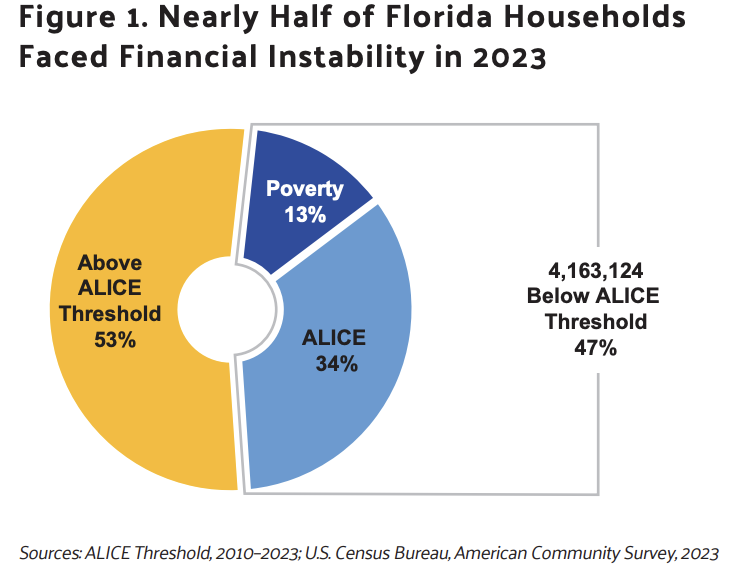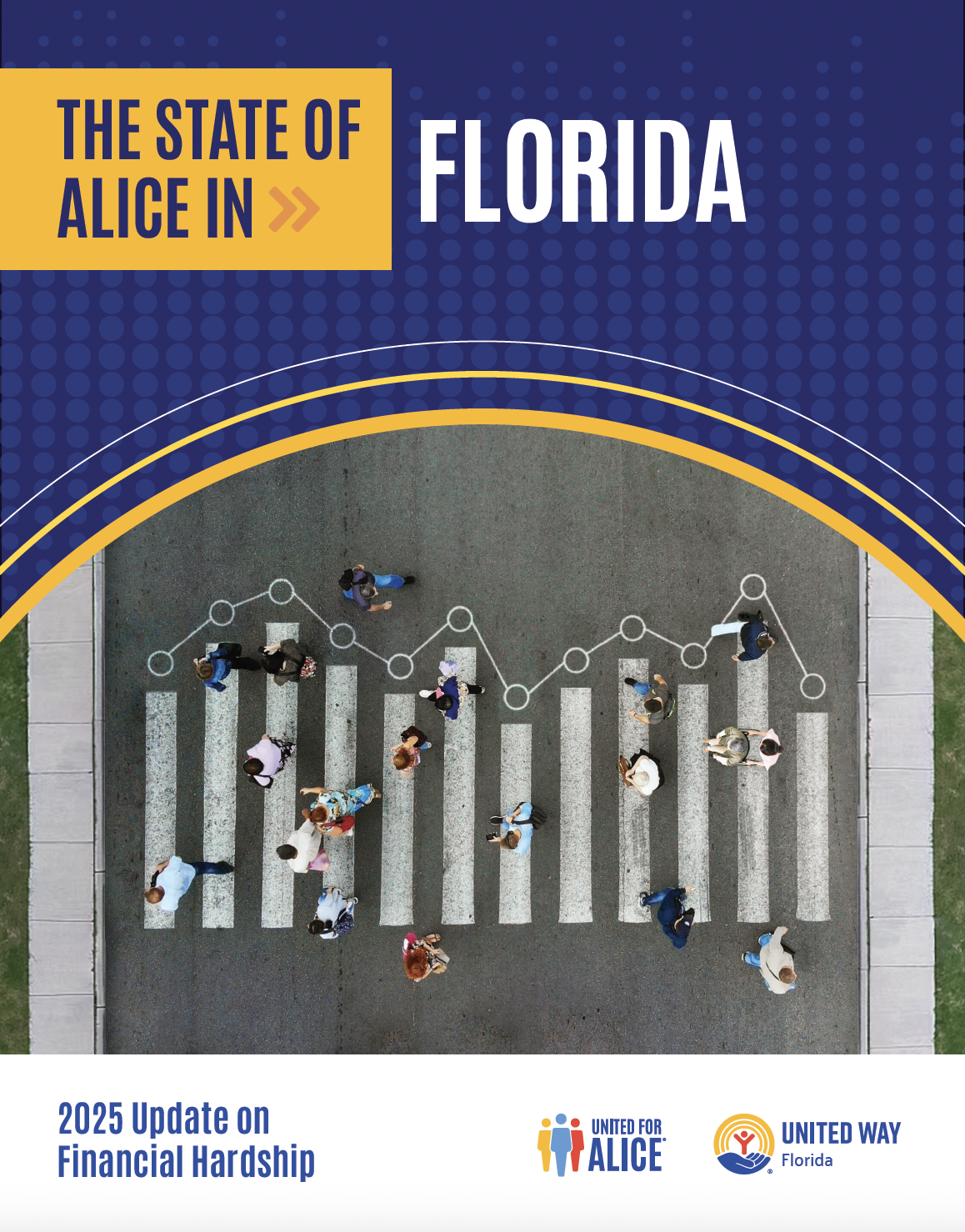
Need Doesn't Stop At the Poverty Line
Between ALICE households and those living in poverty, an estimated 47% of households in Florida were below the ALICE Threshold in 2023.
Who is ALICE?
- ALICE® stands for Asset Limited, Income Constrained, Employed.
- ALICE households have income above the Federal Poverty Level but still don’t make enough to afford the basics.ALICE is the engine that powers our economy.
- ALICE workers are typically our child care providers, home health aides, delivery drivers, grocery store cashiers, and other essential workers we rely on every day. ALICE can also be a family member, friend, neighbor, or even colleague.
- ALICE is often locked out of public assistance. Why? Despite ALICE living paycheck to paycheck, in many cases, ALICE workers earn too much to qualify for support. Each day brings a new impossible choice for ALICE families, mired in a constant battle to make ends meet. Pay my heating bill, or buy healthy food for my family? Pay for child care, or work reduced hours to stay home with my child?
- ALICE lives in every community, in every county nationwide. Financial hardship isn’t just a big-city or rural problem – it’s everywhere.
- ALICE isn’t giving up. Despite the odds, these individuals and families are resilient.
- ALICE works hard, yet is trapped by systemic barriers that stand in the way of getting ahead.
Why ALICE Matters in Charlotte County:
- 30,431 (34%) ALICE Households (state average: 34%) [2022 data: 35%]
- 7,901 (9%) Households in Poverty (state average: 13%) [2022 data: 10%]
- Population: 206,134
- Number of Households: 90,367
Information derived from 2023 Point-in-Time Data
ALICE UPDATE, 2024 *Wage working full-time required to support this budget For ALICE Survival Budget sources, visit UnitedForALICE.org/Methodology. Note: See an interactive version of this data at UnitedForALICE.org/Florida Sources: ALICE Threshold, 2010–2023; American Community Survey
Financial Hardship Snapshot (2022)
|
Category |
Charlotte County |
Florida Avg. |
|---|---|---|
|
Median Income |
$64,860 |
$69,303 |
|
Labor Force Participation |
43% |
60% |
The cost of basic needs has outpaced wages.
A Charlotte County family of four with two children in childcare needs $85,080/year to survive — far above the $27,750 federal poverty line.
Monthly Cost Example – Family of 4 w/ 2 in Child Care:
|
Expense Category |
Monthly Cost |
|---|---|
|
Housing & Utilities |
$1,142 |
|
Child Care |
$1,458 |
|
Food |
$1,327 |
|
Transportation |
$1,076 |
|
Health Care |
$813 |
|
Technology, Misc., Taxes |
$1,274 |
|
Total |
$7,090 → $85,080/year |
Quick Links
Who Falls Under the ALICE Threshold in Charlotte County
- 49% of residents 65 & older [2022 data: 47%]
- 79% Single Female Households with Children [2022 data: 82%]
- 62% Single Male Households with Children [2022 data: 64%]
Florida
 In 2023, 47% of Florida households were below the ALICE Threshold, which included 1,129,685 households that were in poverty (13%) and 3,033,439 ALICE households (34%).
In 2023, 47% of Florida households were below the ALICE Threshold, which included 1,129,685 households that were in poverty (13%) and 3,033,439 ALICE households (34%).

